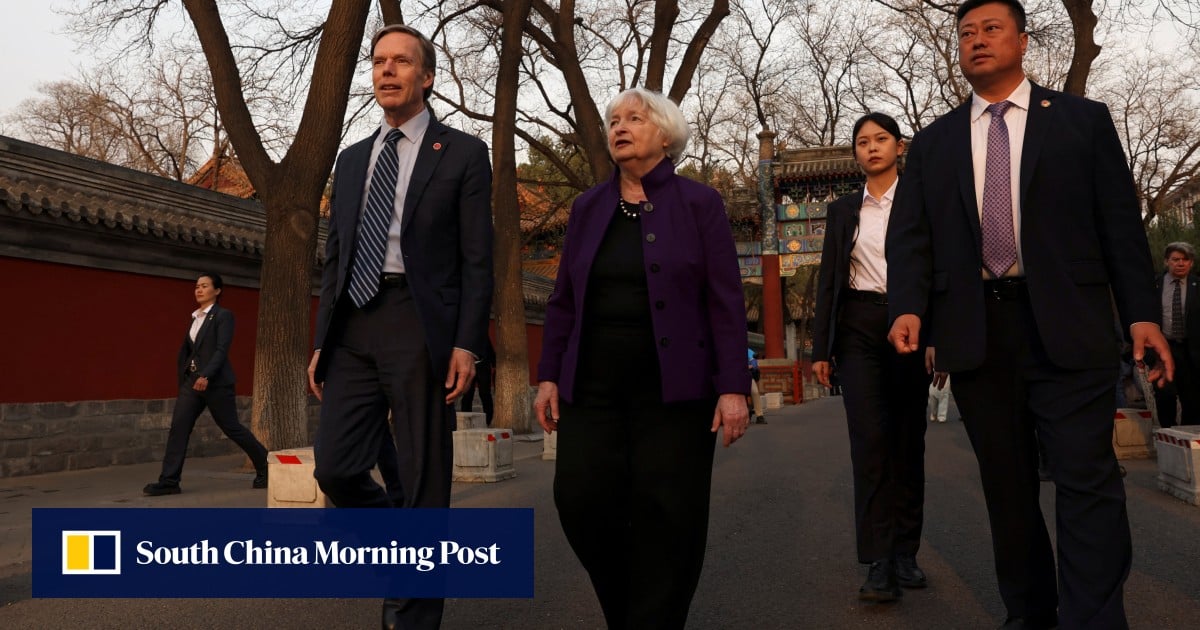The week-long trip to China by US Treasury Secretary Janet Yellen sidestepped core economic disputes, and without headway, analysts said the pressure of November’s presidential election could force the Biden administration “to be more aggressive” on the trade front.
“The November election pressure may force Biden to be more aggressive on the US-China trade front, as this is one issue that American politicians can win easy points,” said Chen Zhiwu, the chair professor of finance at the University of Hong Kong, after Yellen and her Chinese counterparts failed to address some major issues.
“But, the Biden team has in general taken a mild approach towards China, and I don’t think they want to start a real trade war in 2024.”
He said that Yellen had focused on addressing practical short-term issues, such as the prevention of possible dumping of electric vehicles and other manufacturing products, money laundering and the mistreatment of US companies in China, during her trip.
“During this trip, we have been able to build on that foundation to move the ball forward on specific issues that matter to Americans,” she said in Beijing on Monday.
“That does not mean we have resolved all our differences. There is much more work to do. And it remains unclear what this relationship will endure in the months and years ahead.”
Beijing will raise these issues [to Yellen], but it’s for sure that they don’t expect any of these will get resolved
Lu Xiang, a senior researcher with the Chinese Academy of Social Sciences, also said both countries would maintain a level of communication with deeper exchanges.
“Yellen’s trip will ease the tension between China and America, especially the meeting with Liu He shows that China is consistent in the bilateral relationship,” he said, referring to China’s former vice-premier who led previous trade negotiations with the US.
Yellen also met People’s Bank of China governor Pan Gongsheng on Monday, and the pair discussed the macroeconomic situation, financial stability, currency policies and global financial governance, according to a statement from China’s central bank.
Ye Yu, deputy director of the Institute for World Economy Studies at the Shanghai Institutes for International Studies, said that China was concerned about trade tariffs and export controls.
“Beijing will raise these issues [to Yellen], but it’s for sure that they don’t expect any of these will get resolved,” she added.
“The situation now is more about whether these [measures] will be further escalated.”
Besides the trade and tech war, Liang Yan, chair of economics at Willamette University in Salem in the US state of Oregon, said that President Xi was eager for foreign investors to return to China amid the ongoing economic slowdown.
Yellen in China: ‘difficult conversations’, overcapacity spat add to tensions
Yellen in China: ‘difficult conversations’, overcapacity spat add to tensions
“The fact that Yellen went to China in July and so quickly returned is a ‘good sign’ of intent to keep things moving,” she said.
Yellen said that she also had “difficult conversations about national security” with Chinese leaders, while they also exchanged information on the use of economic tools in the national security space.
Alexander Vuving, professor at the Daniel K. Inouye Asia-Pacific Centre for Security Studies in Hawaii, said that “both sides have reasons why they want to keep the talks [going]”.
“Cooperation is part of the narrative for both sides, so both sides want to appear to the world to be constructive,” he added.
